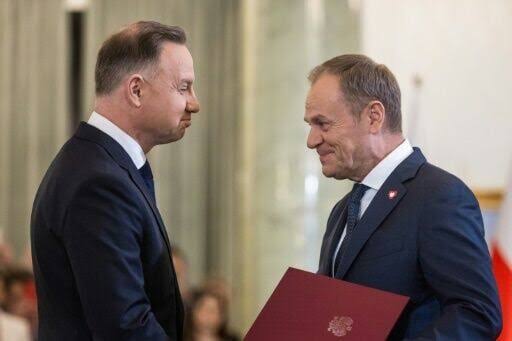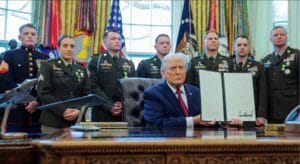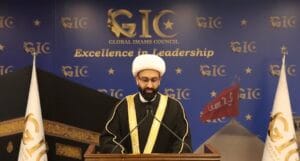Biden to reassure polish leaders amid mounting Ukraine fears

US President Joe Biden is set to welcome Poland’s President Andrzej Duda and Prime Minister Donald Tusk at the White House on Tuesday, aiming to assuage concerns and reaffirm support for Warsaw amidst escalating tensions following Russia’s invasion of Ukraine. Duda has called upon NATO allies to increase their defense spending in response to heightened apprehensions about Moscow’s aggression and is expected to urge Biden to deploy additional US troops to NATO’s eastern frontier with Russia.
The upcoming meeting underscores the Biden administration’s efforts to address simmering tensions within NATO, particularly between the hard-right Duda and the pro-EU Tusk, amid concerns that internal discord could weaken the alliance. While Biden has emphasized backing for Ukraine as a cornerstone of his foreign policy, he downplayed reports suggesting Poland’s request for an augmentation in the number of US forces stationed in Eastern Europe as a deterrent against Russia.
Scheduled on the 25th anniversary of former Soviet-bloc countries Poland, the Czech Republic, and Hungary joining NATO, the meeting is poised to focus heavily on reassuring Poland of unwavering US support, especially in light of stalled Congressional aid for Ukraine and former President Trump’s controversial stance on NATO funding and Russian aggression. White House Press Secretary Karine Jean-Pierre emphasized the leaders’ commitment to bolstering Ukraine’s defense against Russia’s incursion.
However, political instability within Poland, marked by frequent clashes between Prime Minister Tusk and President Duda, adds another layer of complexity to the discussions. Despite internal discord, both leaders have maintained a unified stance on supporting Ukraine, with Poland playing a significant role in providing refuge for hundreds of thousands of Ukrainian refugees fleeing the conflict.
Duda’s call for NATO members to elevate defense spending to three percent of GDP underscores growing apprehensions within the alliance regarding Russia’s belligerence. While NATO’s current defense spending target stands at 2 percent of GDP, Poland, already exceeding this threshold with approximately 4 percent, emphasizes the need for a robust response to Russian aggression.
As the specter of a potential return to the White House by former President Trump looms, concerns persist among Kyiv and Western allies regarding the implications for Ukraine and broader regional stability. Hungarian Prime Minister Viktor Orban, a Trump ally known for his close ties with the Kremlin, disclosed Trump’s reluctance to financially support Ukraine during a recent meeting, further complicating efforts to counter Russian aggression and restore stability in Eastern Europe.













